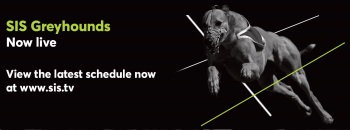CHAPTER EIGHT – UP TO DATE
As we reach the end of the tale, it is early 2011, some three years since we started.
Nick continues to train, albeit in a smaller way. Many of the better dogs have been sent to Fraser Black in Ireland, or former head girl Kelly Findlay.
Westmead Hawk has landed his first UK sires title and is Ireland’s busiest stud dog.
There are pups in the Westmead paddocks, and as long as Nick’s health holds out, there always will be.
Whether the most successful breeding kennel in the history of British greyhound racing will be around to celebrate its 50th anniversary in 2017 must remain a matter of speculation.
Looking back, Nick and Natalie have sharply contrasting views when asked ‘was it all worth it?’
Natalie says: “No, not for me. The sacrifices have just been too great. When I think back to our time in Collindale, and imagine how our life style would have evolved, I do resent it if I’m honest.
“The clothing business was going well, we had a circle of good friends in the Greek community and would soon have a young family.
“The greyhounds were supposed to be a hobby, but Nick threw himself into it like he does with everything.
“The greyhounds just took up such a lot of his time, particularly when the girls came along. I spent a lot of time on my own.”
Nick feels very differently. Ironically, the man who only turned to breeding in desperation after buying so many poor racing dogs, has long seen himself as primarily as a breeder.
He has said, on many occasions, “I would rather breed a Derby winner than train one.”
Not that success is an overriding factor. Given a choice of being presented with a Category One trophy live on TV or taking a litter of pups for their qualifying trials – Nick would opt for the trials session every time.
Former head girl Kelly Findlay said: “I think the only reason Nick trains at all is so that he can be sure his pups have been given the best possible treatment.”
Owner Gail May said: “I will sometimes come to the kennel and catch Nick just watching the pups running around the paddocks. He is totally contented. After all these years, rearing pups has never lost its magic for him.”
Reflecting on his life changing decision, to dedicate himself to greyhound racing he says: “Greyhounds have been an addiction to me. I was never a gambler, but I remain fascinated with the dogs and I have given them everything I possibly could. It has been 100 percent commitment.
“I accept that sacrifices were made, huge sacrifices, but I made them gladly.
“I am sometimes aware that people look at our success and think ‘they’ve been lucky’.
“But it was all hard earned. If I had paid for all the trophies a hundred times over, it would have been cheaper than winning them.
“If you look around at the successful open race kennels, they have all put much more into the greyhound industry than they have ever taken out.
“Trainers like Charlie Lister, and Harry Williams have subsidised their kennels by their other businesses. Before them, the De Mulders did the same thing; Joe Cobbold calculated that it cost him £100,000 to win the trainers championship and that was back in the early 1980s.
“I know, beyond any doubt, that if I had stayed in the rag trade I would have become a multimillionaire
“But money was never my motivation. I fell in love with greyhound racing and despite all the ups and downs, that feeling is just as strong as it has ever been.
“So no I have no regrets – I would do it all over again.”
Thereby ends the biographical section of the book. I plan to run the breeding and training sections in the next few days, and possibly the profiles of the kennel stars, racing and breeding.
In the nine intervening years, we have lost a number of the people mentioned in the book, most notably Natalie Savva who passed away in September last year. It would have been impossible to write SAVVA without her full support. She patiently reminisced, sourced old photos and was kind and generous during my dozens of visits to her home. No one paid a greater price for the Westmead success than Natalie and I was keen not to airbrush away her sadness and occasional bitterness over the cost of greyhounds in her life.
We also lost Nick’s brother Theo (Mentzis) following a long battle with illness. I first got to know Theo and his ‘Rikasso’ hounds when working in the Cambridge racing office in the early 1980s and although barely recognisable following steroid treatment, the crafty, cunning, and hugely funny Theo was still great entertainment. The story of young Theo and the ‘dancers’ remains one of my favourites. How he cackled, as he relived the whole story.
I was privileged to have met Nick’s other brothers, Peter and Andrew and their families, and spent many hours with the irrepressible Jack Elias. But most of all, I don’t think I have ever spent happier times than the hours of Ouzo fuelled evenings spent on the balcony of the great man’s apartment just outside Limosol.World affairs, history, science, and of course lots of greyhounds. What an honour!
After spending 20 years to persuade Nick to produce a book, I managed to drag it 0ut to three years in the production. Commercially it did little more than break even (“we should have written it sooner” he said), but it was worth every moment.
It is ironic that the Coronavirus outbreak presented the opportunity to publish the book on the internet and judging from the incredible response, there is no doubt that it has been more widely read in the last few days, than it was in paper form. How lovely to be able to share the story with a new audience.
Nick gave up his license at the start of the year but remains active assisting Any Ioannou in the schooling. I spoke to him this week. He is in great health and his passion for greyhound racing is undimmed.
Nick Savva is without doubt the most loved and respected individual that this industry has ever produced.
Floyd Amphlett












